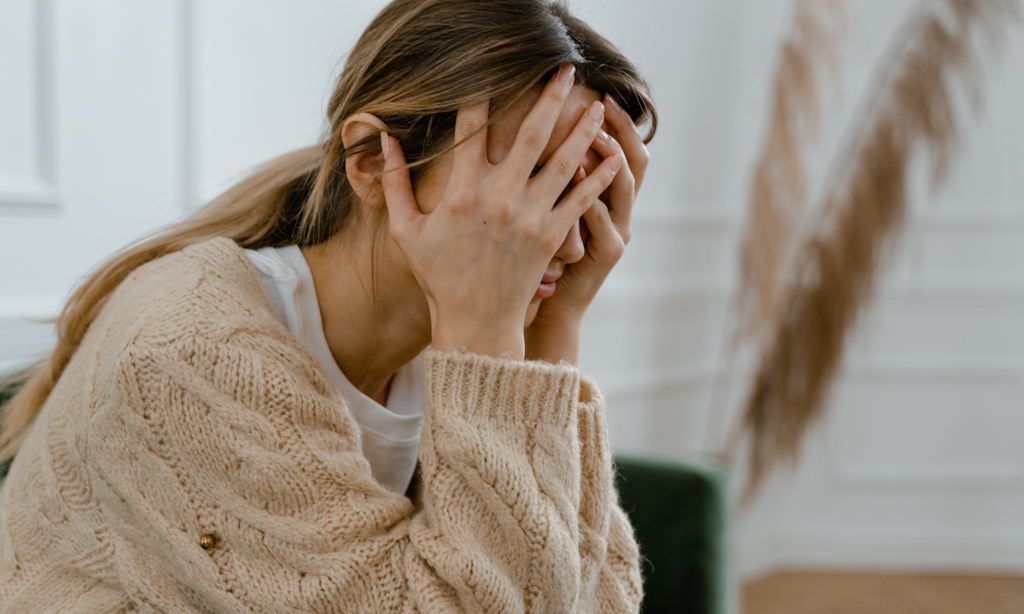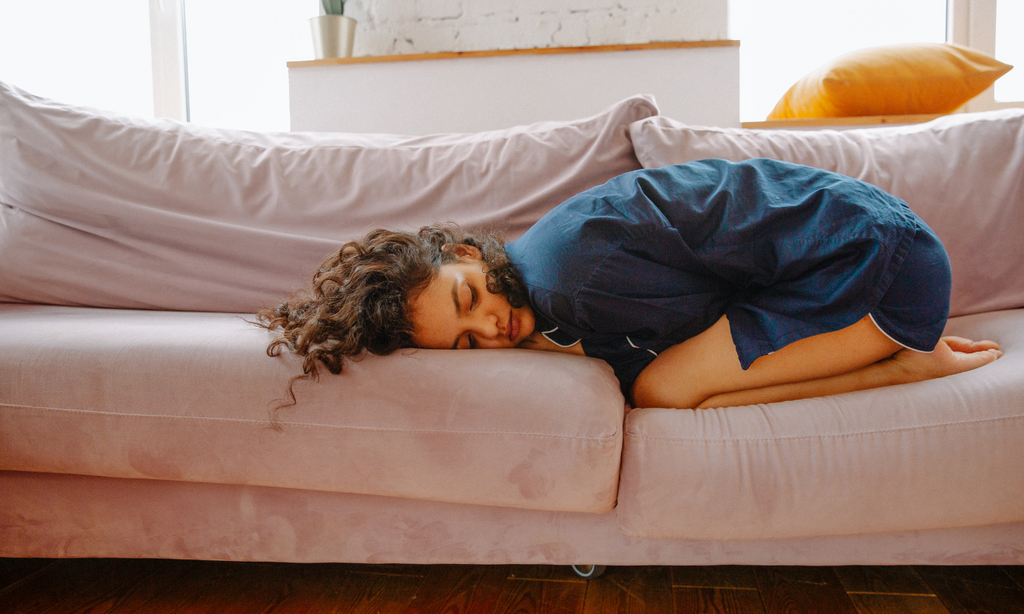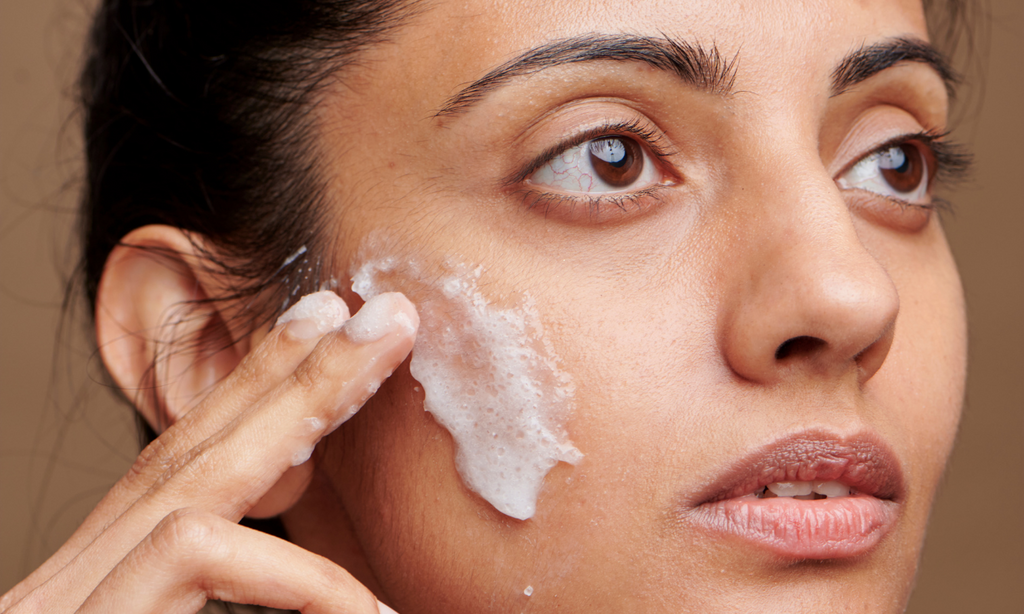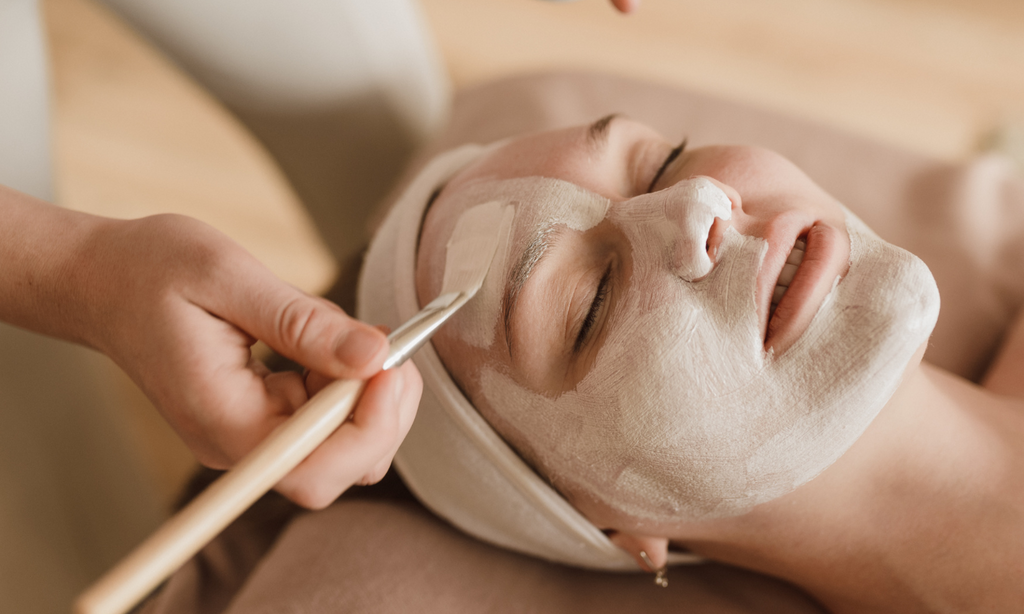How to Treat Acne Naturally Part 2: Hormonal Imbalance
If you followed along for Part 1 of this series, you have already learned where acne comes from and the three common areas of imbalance that need to be addressed. If you haven’t, you can Read Part 1 here. TL;DR: Acne is an inflammatory disorder of the skin that is most effectively solved by restoring internal balance, not just killing bacteria on the surface.
Welcome back to How to Treat Your Acne Naturally Part 2, where we’ll learn about the first major area of imbalance that may be causing your acne: hormones.
HOW DO HORMONES IMPACT OUR SKIN?
Hormones are integral to almost all functions in our body. They regulate everything from our heartbeat, to our emotions, to how our body heals itself. Unsurprisingly, hormones can also be connected to acne!
Hormones impact our skin most directly through managing production of sebum, keratin, and new skin cells. Sebum and keratin are both important in moderation, but can cause issues such as clogged pores if they are over or underproduced. Meanwhile, our rate of cell production impacts healing, regeneration, and maintaining a glowing complexion.
WHAT CAUSES HORMONES TO FLUCTUATE?
Stress

Our sebaceous glands are a neuroendocrine organ, and they have been shown to potentially respond to changes in hormones due to stress. Androgens, histamines, steroids, retinoids and other hormones associated with stress can impact the sebaceous glands and result in excess sebum production, especially in higher concentrations.
Menstruation

For those of us who get a period, our monthly cycle affects the balance between estrogen and progesterone within our bodies. Progesterone can lead to increased sebum production and has been linked to period-related breakouts. Estrogen, on the other hand, has been shown to be able to reduce sebum production. During our period, the levels of progesterone are higher than estrogen, which is why some of us get breakouts at this time of month.
Those taking contraceptives that lessen their period, on the other hand, often find that it helps control acne throughout the month. As many as 14% of birth control users have stated they use it to help manage acne production.
Diet

If you are a believer of a holistic way of approaching health, then mentioning the link between your diet and your skin will not come as a surprise. Studies have shown that these dietary imbalances, among others, can contribute to acne and inflammation:
- High in omega 6 fatty acids
- Low in omega 3s
- Rich in processed carbohydrates and dairy
- Provoking a high insulin response
- Low in antioxidants
- Deficient in zinc
- Dehydrating
To avoid inflammation that can lead to imbalances across the body as well as appearing on our skin, our diet should be hydrating and nutritious, support gut health, and moderate the indulgences that stress our system.
Adolescence

During our teenage years, rapid adolescent development can sometimes lead to acne as adrenocortical hormones fluctuate. Adolescence can also combine multiple hormonal causes of acne, such as starting menstruation, increased stress, and dietary changes. (Starting contraceptives, on the other hand, may moderate the effects of starting menstruation).
Genetics

If you have a genetically determined hormonal imbalance, such as an autoimmune condition, your hormones may be particularly difficult to balance. For example, PCOS (Polycystic Ovarian Syndrome) impacts the body’s androgen production, which can imbalance the sebaceous glands and contribute to cases of chronic hormonal acne. If you think you may have a condition impacting your hormonal balance, you should consult your healthcare provider.
Want to learn more about these different hormones? Download our hormone ebook for free here.
HOW CAN WE PREVENT HORMONAL ACNE?
Observe Patterns

Knowing the different types of hormonal shifts that might affect your acne, look for clues as to whether any of these scenarios seem to trigger a flare-up. For example:
- Do you always break out at a certain part of your cycle? (menstruation)
- Do you break out after a night of poor sleep? (stress)
- Does having large servings of certain meals seem to preclude a breakout? (diet)
If you are able to notice any continuity in scenarios that relate to your acne, you may be able to take some steps to reduce inflammation in that area. Though I should mention—the intention is not to self-diagnose any sort of condition, but just to understand your body’s patterns of inflammation better. If you do suspect that you have an underlying health condition, you should plan to approach your medical provider.
Dietary Shifts

If you suspect that your diet is the culprit, or have already observed a connection between diet and flare-ups, you can make slow, sustainable changes one at a time and observe the reactions of your skin and your whole body’s health. Here are some to start with (but not all at once!):
Increase:
- Fresh fruits, vegetables, and legumes
- Anti-inflammatory herbs like turmeric and green tea
- Foods high in zinc, like oysters or pumpkin seeds
Reduce:
- Processed foods (included packaged and non-perishable items)
- Processed carbohydrates
- Oils high in omega-6 (list for reference)
- Grain-fed meat
- Dairy products
Stress Relief

If you think stress might be causing your breakouts, learning some stress relieving techniques, finding more time for self care, or integrating aromatherapy into your daily routine could help. Stress relief looks different for everyone—find what works for you!
Topical Treatments

Unfortunately, some hormone fluctuations we cannot change through diet or lifestyle, such as those related to menstruation. But the good news is that whichever way you believe hormones are affecting your skin, it is possible to use appropriate topical measures to help prevent or lessen those breakouts!
Knowing that acne caused by hormonal shifts often starts with increased sebum production and clogged pores, we can use topical products that support keeping pores clear and regulating sebum production. Here’s what that might look like:
- Gentle daily chemical exfoliation with natural sources of AHAs and BHAs. Harsh acid peels are often not very friendly to acneic skin, especially if your skin barrier is already compromised and you are healing slowly. On the other hand, finding products that have gentle amounts of exfoliating ingredients can allow you to sustainably manage your skin over time and keep pores clear.
Some examples from our line are the Neroli Clarifying Mist with willow bark extract (similar to salicylic acid) or the Sea Berry Balancing Facial Oil with sugar extract (a natural source of glycolic acid).
- Masking and exfoliating treatments. Masks will deep-clean in a way that gentle daily exfoliating products can’t—it’s important to have a balance of both. 3-4 times a week, use either an exfoliating mask or a clay mask, being careful not to dry out or irritate the skin. You can also accomplish this step with a more targeted AHA/BHA serum, if your skin is able to tolerate it. These deeper treatments are also an opportunity to spot-treat stubborn areas.
We recommend the Hibiscus Exfoliating Mud with raw honey or the Mineral Purifying Mask with French green clay for regular treatments.

- Use topical products that contain both calming and corrective ingredients. Using a facial mist and/or facial oil that contains ingredients shown to help naturally regulate sebum production is also supportive, since we want to both regulate sebum and clear clogged pores. Look for products that contain oils rich in linoleic acid, sea buckthorn berry oil, or green tea.
Some recommendations from our line are the Neroli Clarifying Mist with green tea, the Sea Buckthorn Balancing Facial Oil with sea buckthorn, and the Herbal Clarifying Facial Oil with green tea.
Thanks for reading!
Did you miss Part 1, where we talked about the causes of acne? Go back to Part 1: Causes if you’d like to learn more. And make sure you are subscribed to our newsletter to be notified with Part 3: The Microbiome is released!
Important: This article is meant as an informative guide, and is not intended to help cure any disease.
1 comment
Hi! Just wanted to say thank you for this helpful post. I found it beneficial in teaching me a bit more about hormonal acne since acne can be frustrating. I can’t wait to try out some of your products that you recommended as well.


